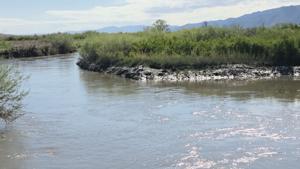A team of researchers is investigating the impact of climate change on the water resources of the **Humboldt River Basin** in **Nevada**. This study aims to provide insights into how rising temperatures and changing precipitation patterns are affecting water availability in the region, which is crucial for local ecosystems and communities.
The research, led by **Loretta Singletary**, a hydrologist with the **US Geological Survey**, focuses on analyzing historical climate data alongside current hydrological conditions. By comparing past and present measurements, the team seeks to identify trends that could inform future water management strategies. The Humboldt River is vital for agriculture, drinking water, and wildlife in the area, making the findings particularly significant.
To assess the situation, the researchers are utilizing advanced modeling techniques. These methods allow them to simulate various climate scenarios and their potential impacts on the river’s flow and water quality. The study also incorporates data from the **National Oceanic and Atmospheric Administration (NOAA)**, which provides critical information on changing weather patterns and their implications for regional hydrology.
Understanding the effects of climate change on the **Humboldt River Basin** is essential for developing adaptive strategies. As water resources become increasingly strained due to fluctuating weather conditions, communities relying on this river may face challenges in maintaining their water supply.
The research team emphasizes the importance of collaboration among stakeholders, including local governments, farmers, and environmental organizations. By working together, they hope to create a comprehensive approach to managing water resources in an era of climate uncertainty.
As the study progresses, the researchers aim to publish their findings in **2023**. Their work will contribute to a growing body of evidence regarding the impacts of climate change on freshwater systems in the United States and beyond. The outcomes could also serve as a model for similar studies in other regions facing analogous challenges.
Ultimately, the efforts of Singletary and her team highlight a pressing need for proactive measures to safeguard water resources in the **Humboldt River Basin**. Their findings will be crucial for informing policy decisions and ensuring sustainable management of this vital resource in the face of ongoing climate change.







